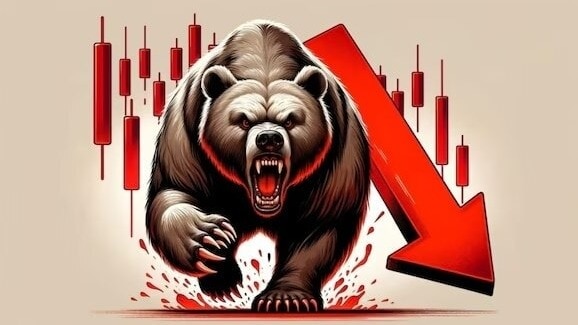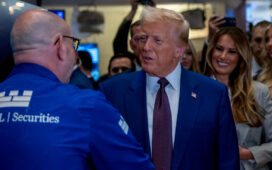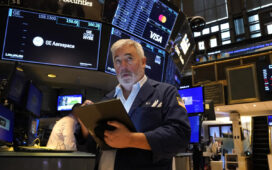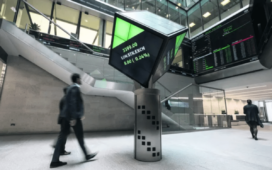Indian stock markets opened with big cuts during the trading session on Monday after the US administration imposed tariffs on Canada, Mexico, and China over the weekend. The fears of having some implications for India spooked the traders at Dalal Street, triggering intense selloff.
The US government under the new president Donald Trump has slapped a 25 per cent duty on Canadian and Mexican goods. An additional 10 per cent duties on China, above the current tariffs, dented the sentiments further, leading to a global sell-off. The Trump administration has called the measures necessary to combat illegal immigration and the drug trade.
BSE’s Sensex dropped more than 730 points, or 0.94 per cent on Monday, to 76,774.05. Similarly, Nifty50 crumbled 243 points, or 1.04 per cent, to 23,239.15 at the opening tick. In the broader market, BSE midcap and smallcap indices crashed up to 2 per cent each. Fear gauge India VIX soared about 5 per cent to 14.76-levels in the early trade.
Despite an excellent Budget the market will be under pressure from the Trump tariffs and the heightened global uncertainty these ‘initial round of tariffs’ has triggered, said VK Vijayakumar, Chief Investment Strategist, Geojit Financial Services. Trump may use tariffs again against other countries on non-trade issues, he cautions.
“Now we don’t know how this will pan out. For now, India is not affected. Therefore, the impact on the Indian market will be less. But the spike in the dollar index to above 109.6 will trigger more selling by FIIs putting the market under pressure,” Vijaykumar added.
Domestic consumption stocks will be relatively resilient since they stand to benefit from the income tax cuts announced in the Budget.”
The sharp knee-jerk reaction wiped out a notional wealth of more than Rs 4.72 lakh crore from investors pocket as the total mark capitalization of all the BSE-listed companies tumbled to Rs 419.22 lakh crore. The total mcap of all BSE-listed entities stood at Rs 423.94 lakh crore as of Saturday’s close.
Markets saw a gap down opening due to weakness in US and Asian indices after US President Donald Trump announced tariffs on Canada, Mexico and Chinese goods, which could result in retaliatory measures from these countries on US imports, said Prashanth Tapse, Senior VP (Research) at Mehta Equities.
“The sentimental impact may fuel pessimism in domestic markets on fears that similar US measures could be imposed on Indian imports,” he said. “Global factors will continue to dominate the mood, local investors will also be looking forward to this week’s RBI monetary policy announcement and its comment on interest rates and economic outlook.”
In the Nifty50 pack, Bharat Electronics crashed more than 5 per cent, while Bharat Petroleum, Coal India and ONGC sank on the similar line. L&T, Hindalco NTPC and Power Grid were down 4 per cent each. Among the gainers, ITC Hotels and Titan rose 2 per cent each, while Nestle India, Maruti Suzuki and Dr Reddy’s added a per cent each in the early trade.
Broader market counters including Hitachi Energy India tanked about 8 per cent, while Hudco, RVNL, Hindustan Petroleum, Jupiter Wagons and JP Power tanked 7 per each. RITES, GRSE, Motherson Sumi, GIC of India, RailTel Corporation, Bharati Dynamics and Vedanta cracked 6 per cent each.
Among the gainers, Hatsun Agro was up 7 per cent ,while KPR Mills rose 6 per cent in the early trade. KPI Green and Orient Electric were up 5 per cent. PI Industries, Wockhardt, Elgi Equipment, Asahi India Glass and Jindal Worldwide surged 4 per cent each during the session.
The Indian markets experienced high volatility due to the Budget. Strong buying was seen at the start, but the index failed to sustain higher levels and ended on a negative note below the 23,500 mark, said Hardik Matalia, Derivative Analyst at Choice Broking. “Foreign Institutional Investors (FIIs) remained net sellers, raising concerns about the sustainability of the ongoing rally.”
Disclaimer: Business Today provides stock market news for informational purposes only and should not be construed as investment advice. Readers are encouraged to consult with a qualified financial advisor before making any investment decisions.





